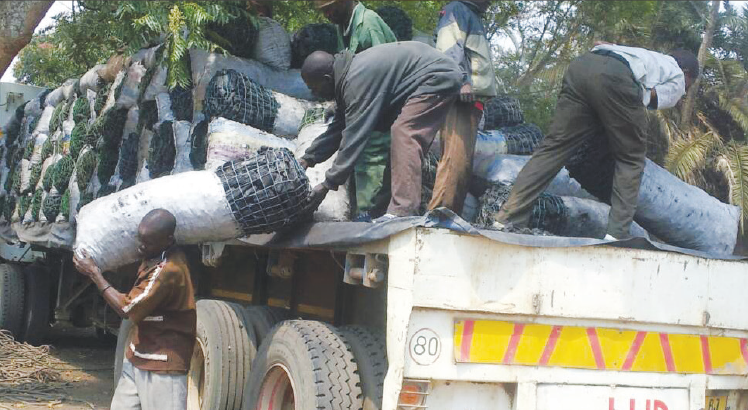Children motivate health worker
Seeing malnourished children recovering and thriving motivates Shadreck Mpomba, 52.
“Malnutrition has devastating effects on a child’s physical and mental development,” says the health surveillance assistant at Nsanje District Hospital.
In 2023, devastating floods caused by Cyclone Freddy across Malawi’s Southern Region disrupted food security of vulnerable households.
The disaster left Mpomba worried.
His workload tripled with many families lacking food and struggling to provide good nutrition for children.

Recalls Mponda: “We registered high malnutrition cases at our health facility due to the food insecurity.
“Before the cyclone, we could treat about 15 malnourished children every month, but that number increased to about 45. In some cases, the high number of cases also depleted the stocks of the ready-to-use therapeutic food [RUTF] which we use to treat malnutrition in children.”
Following the cyclone, government declared a state of disaster in Nsanje and the rest of the Southern Region.
The declaration included an international appeal for partners to support lifesaving, recovery and resilience building efforts.
Unicef is working with the Ministry of Health’s Department of Nutrition, The Hunger Project (THP), Farmers Union of Malawi (FUM) and district councils to deliver lifesaving support.
For Mpomba, the support has enabled frontline health workers scale up their fight against malnutrition.
“Our priority is to prevent and treat malnutrition in all under-five children. We screen as many children as possible for malnutrition using tools like mid-upper arm circumference [Muac] tapes and height boards,” he said.
Based on the assessments, health workers provide appropriate treatment to the children with malnutrition.
“Some are admitted in the nutrition rehabilitation unit at the district hospital while others are treated as outpatients and their parents just collect RUTF packets every week until the child recovers,” says the community health worker.
Fatima Zuze, 27, has an undernourished girl-child who is regularly assisted by Mpomba and other HSAs.
She does not miss the nutrition clinics held every Thursday at the hospital to collect RUTF packets for her 11-months-old daughter, Malita.
“I was stressed when my child was not feeling well and had swelling legs,” says Zuze. “Now I feel good to see her happier and getting better than before.”
Mpomba says Malita looks healthier than she was weeks ago.
He advises parents of malnourished children not to share the RUTF packets with anyone because it is medicine.
Mponda regularly visits families in villages surrounding Nsanje’s largest hospital to conduct malnutrition screenings and educate them about appropriate child-feeding practices, including how to prepare diversified meals for children using locally available foods.
“Our work is possible because of the nutrition supplies and screening tools that we get with support from partners like Unicef. These tools and supplies enable us to save lives of children and improve their health conditions so that they can grow up well and thrive to reach their full potential,” he says.
Unicef, with funding from the German Government through KfW, is supporting high-impact nutrition interventions under Malawi’s Scaling Up Nutrition (SUN) programme in Nsanje and four other districts.
Since January, about 24 000 mothers and caregivers in Nsanje received information on appropriate infant and young child nutrition practices.
Unicef resident representative Shadrack Omol says protecting children from malnutrition is important to enhance Malawi’s human capital.
He said evidence shows that proper nutrition during the first 1000 days between a woman’s pregnancy and her child’s second birthday gives children a healthy start in life.
“Improving nutrition is, therefore, a precondition to reducing child mortality, improving maternal health, combating diseases, and eradicating poverty and hunger,” said Omol.





